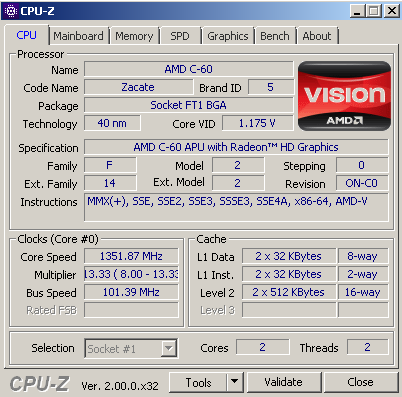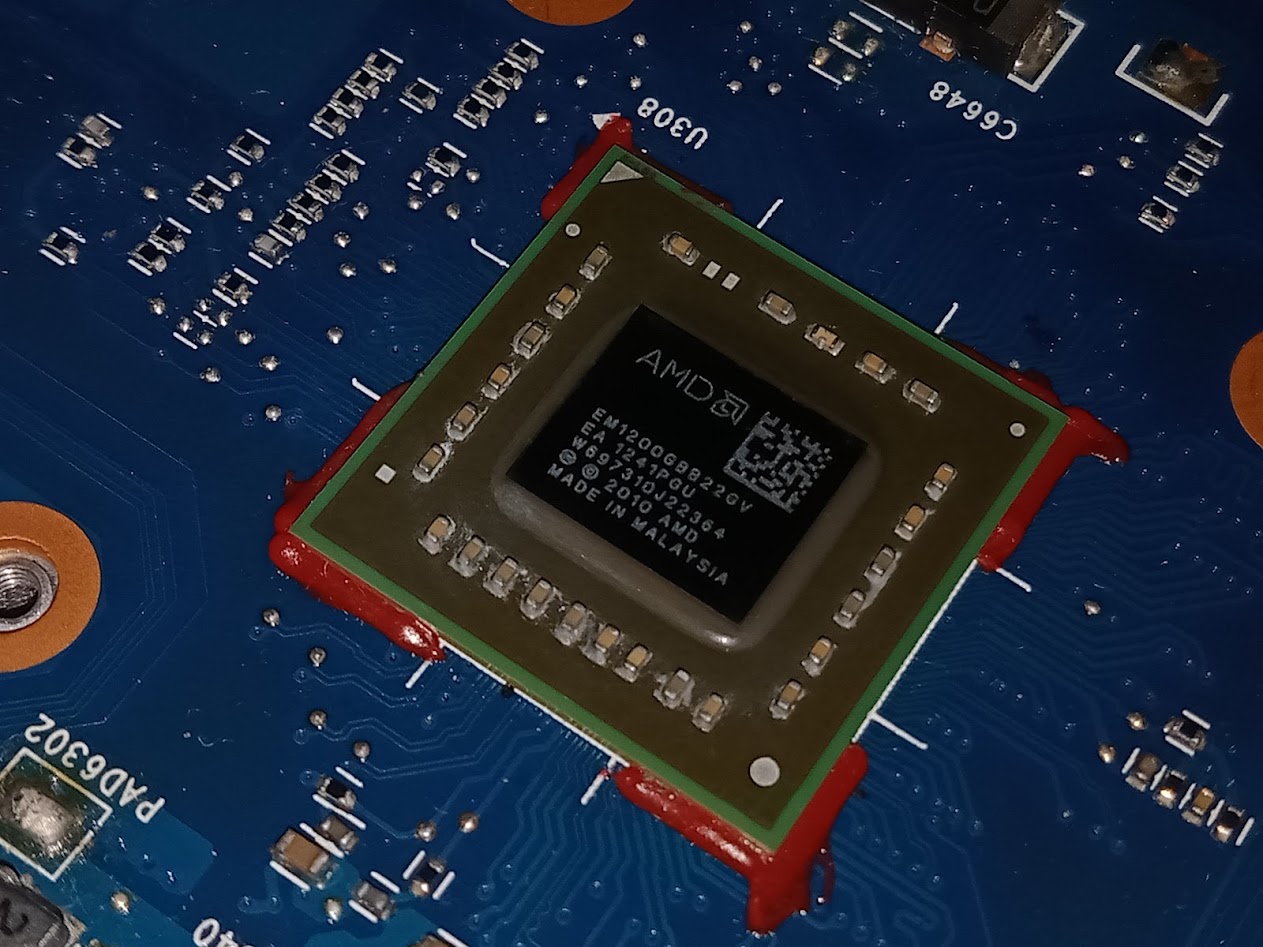Comparing: AMD C-60 vs AMD E1-1200
In this comparison, we analyze two Processors: AMD C-60 and AMD E1-1200, using synthetic benchmark tests to evaluate their overall performance. This side-by-side comparison helps users understand which hardware delivers better value, speed, and efficiency based on standardized testing. Whether you're building a new system or upgrading an existing one, this benchmark-driven evaluation offers valuable insights to guide your decision.
Specification Comparison Table
| Specification | AMD C-60 | AMD E1-1200 |
|---|---|---|
| Architecture | x86 | x86 |
| Technology | 40 nm | 40 nm |
| Clock | 1 GHz - 1.3 GHz | 1.4 GHz - - |
| Core/Thread | 2 / 2 | 2 / 2 |
| Segmen | Mobile | Mobile |
Submission Comparison Table
| Benchmark Software | AMD C-60 | AMD E1-1200 |
|---|---|---|
| PiFast |
2min, 14sec, 820ms |
1min, 49sec, 900ms |
| SuperPi - 1M |
1min, 139ms |
55sec, 754ms |
| SuperPi - 32M |
52min, 10sec, 800ms |
45min, 28sec, 176ms |
About Hardware AMD C-60
Released in 2011, the AMD C-60 is a power-efficient processor that belongs to the Ontario series based on the Bobcat architecture. With 2 cores and 2 threads, and a base clock speed of 1.0 GHz (can increase to 1.33 GHz with Turbo Core), this CPU is targeted at netbooks and portable devices with low power requirements.
The C-60 has a TDP of only 9W, making it suitable for ultra-portable laptops that prioritize battery life. The processor also comes with an AMD Radeon HD 6290 integrated GPU, which has 80 shader cores and supports DirectX 11, providing basic graphics performance for video playback and light gaming.
However, the C-60's performance is limited to light tasks such as browsing and office applications. Its low clock speed and power-saving architecture make it less suitable for heavy multitasking or applications that require high computing power.
Hardware Detail:
Device: Acer Aspire One 522
RAM: 2GB DDR3
OS: Windows 7
Friday, 08 April 2022 17:00:00 | Update: 1 week ago
About Hardware AMD E1-1200
Part of the Brazos 2.0 family, the AMD E1-1200 was introduced in 2012 as a power-efficient solution for entry-level laptops. It has 2 cores and 2 threads at 1.4 GHz, with no Turbo Core feature. Built with 40nm fabrication, this CPU has a TDP of 18W, which is still relatively efficient for low-power devices.
One of the key features of the E1-1200 is its integrated GPU, the AMD Radeon HD 7310, which offers better graphics performance than Intel's integrated solutions of the time. This GPU allows HD video playback and some light games at low settings.
Despite being power-efficient, the E1-1200's performance is quite limited. With a low clock speed and no Boost feature, it lacks responsiveness in multitasking and often experiences bottlenecks in modern applications.
Hardware Detail:
Device: HP 1000 1b05au
RAM: 4GB DDR3 Single Channel 2 DIMM
OS: Windows 7, Windows 8, Windows 10
Wednesday, 26 December 2012 14:27:36 | Update: 1 week ago


